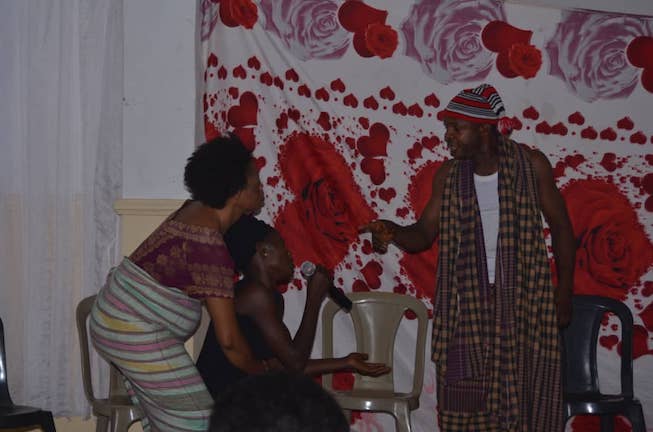The Violence against Women Pandemic
The Violence against Persons Prohibition Act was passed into law in 2015 and was given assent by Governor David Umahi of Ebonyi State in April 2018. With the passage of this law in Ebonyi State, harmful traditional practices- meaning all traditional behaviours, attitudes or practices which negatively affect the fundamental rights of women and girls- is ended. Harmful widowhood practices, denial of inheritance or succession rights, female genital mutilation or female circumcision, forced marriage and forced isolation from family and friends are all included. For effective implementation of the law, Governor Dave Umahi ordered the distribution of copies of the law among the town union presidents, local government chairmen and councilors to help sensitize the people on the content of the law.
What is happening since the law came into existence?
Despite the distribution of the VAPP legislation much is still desired to be done around implementation to achieve violence-free society for women and girls. The VAPP law could be said to be dormant as women still face a lot of violence ranging from wife battery, rape, sexual assault, widowhood rite practices to deprivation of economic wealth. In most rural communities in the state, the society aids and abets violence against women by forcing a woman to pay a fine when she does not give the husband money she earns; whether the man supports his wife or not the community does not care. A woman is forced to apologize to the husband and the husband’s kindred by cooking and buying drinks for the entire family to appease the man and ease the tension in the family or else her husband will stop sleeping with her and in some cases send her packing. Whatever a man does in these communities is right as far as it gives him satisfaction at the expense of the woman. It is in these communities that when a woman dresses neatly she is termed a prostitute that woos men.
It is in this part of the country that a woman is nicknamed ‘ajadu’ if she refuses to be circumcised or to undergo Female Genital Mutilation (FGM) rites. In order to avoid bearing societal labeling, the family does everything within its power to ensure that daughters go through genital mutilation. No wonder in 2013, the Nigerian Demographic Health (NDHS) revealed that Ebonyi State is among the five states in Nigeria that recorded high prevalence in female genital mutilation. According to the report, Ebonyi rated 74%.
Violence against women has always been reported nationwide but there has been an increase within the COVID- 19 lockdowns. Speaking in Abuja, the Country Director of ActionAid Nigeria (AAN), Ene Obi, said “we have never been more alarmed about the cases of Gender Based Violence (GBV) in Nigeria than in recent times. Girls, women, young and old now live in fear as they no longer feel safe even in their own homes. Since the lockdown in March 2020 as a result of the COVID-19 pandemic, ActionAid Nigeria and her partners have documented a total of 253 cases of Gender Based Violence in Bauchi, Cross River, Enugu, Kebbi and Kwara states. Between November 2019 and January 2020 over 4 deaths were recorded as a result of wife battery. One of the cases was in Afikpo North Local Government where a man killed his pregnant wife yet the police held the perpetrator and granted him bail after detention. The second case was in Uburu. Unfortunately, these cases are still prevalent yet the perpetrators go scot-free under the eyes of our leaders and security agencies. With the above narrative AAN called the presidency to declare a state of emergency on GBV.
At the Participatory Development Alternatives in Ebonyi, between January and May 2020, over 3 cases of rape were reported to our organization. In one of the cases, a woman was raped in her farm, while the second woman was raped as she was returning from the market on a lonely path. The most current which has gone viral is an alleged case of a pastor impregnating a 15-year-old girl and at the same time made her abort the pregnancy. On many occasions community leaders who help in propagating this act end up encouraging jungle justice. Government law agencies are not left out in the blame of poor implementation of the VAPP law. The question is where and what do we do if the custodians of laws are not implementing and giving heed to the rule of law?
What PDA has done?
PDA has been on the forefront of campaigning against violence against women both at the state and community levels. In 2017 December, PDA with support from ActionAid held state-level advocacy by bringing both state and non-state actors to showcase the plight of womanhood using theatre. PDA has used platforms like International Women’s Day, 16 days of activism and local festive periods to educate, sensitize and link victims to appropriate redress centres.
Results
Our major achievements have been the abolition of an age-long obnoxious practice: female genital mutilation in Ephuenyim and Okpuitumo communities in Abakaliki Local Government. In Ezi Acha of Amuro community at Afikpo North Local Government, over 15 women now have access to land for farming. Before PDA intervention in Ephuenyim women did not have the power to buy and own portions of lands for building or farming. But today 2 women have testified about ownership of their personal land.
What is next?
PDA will continue to campaign against violence against women by educating people on the VAPP law through social media, work with other relevant agencies to ensure that perpetrators are brought to book. Your support will help us achieve this goal.


